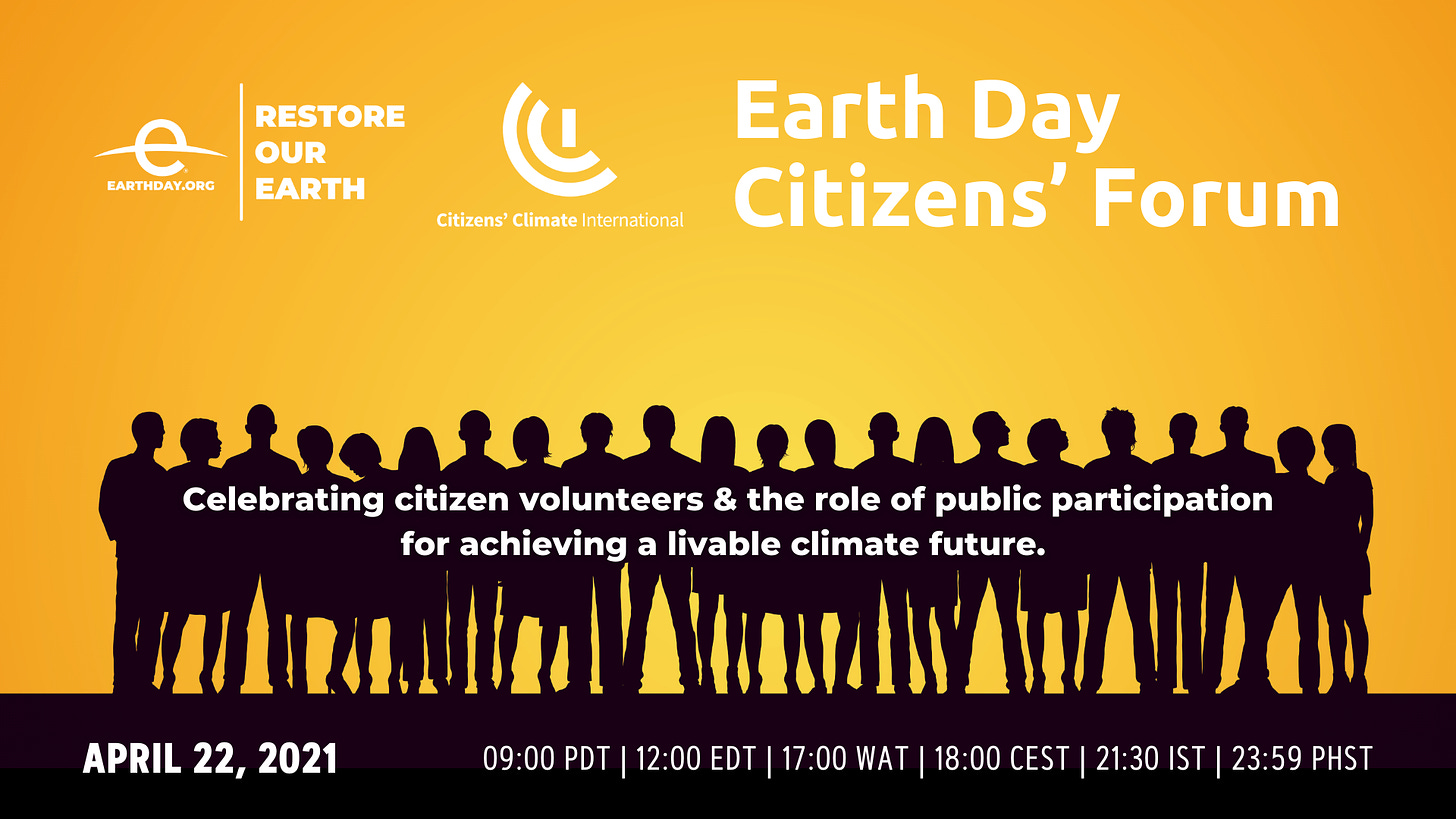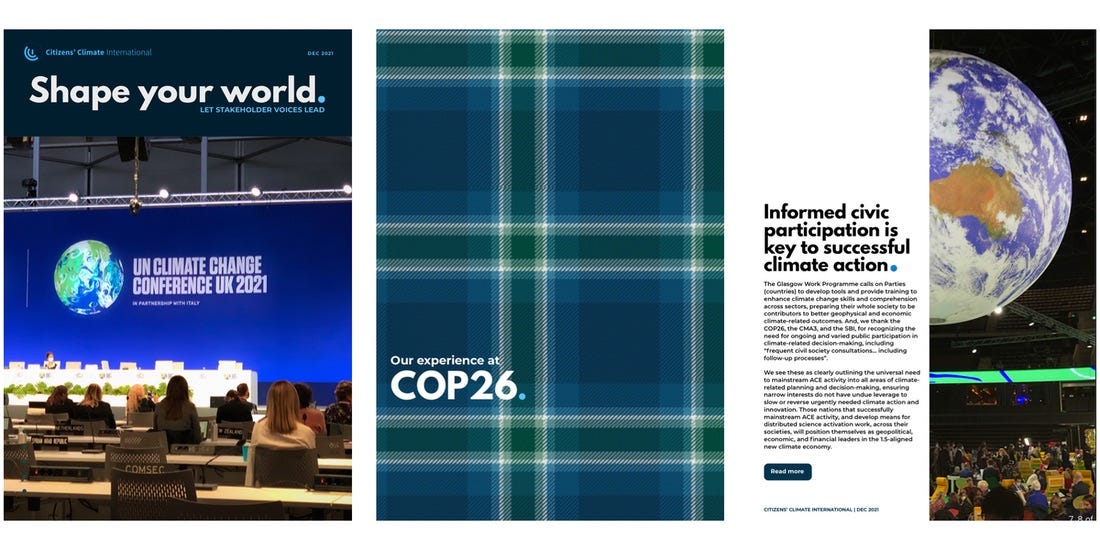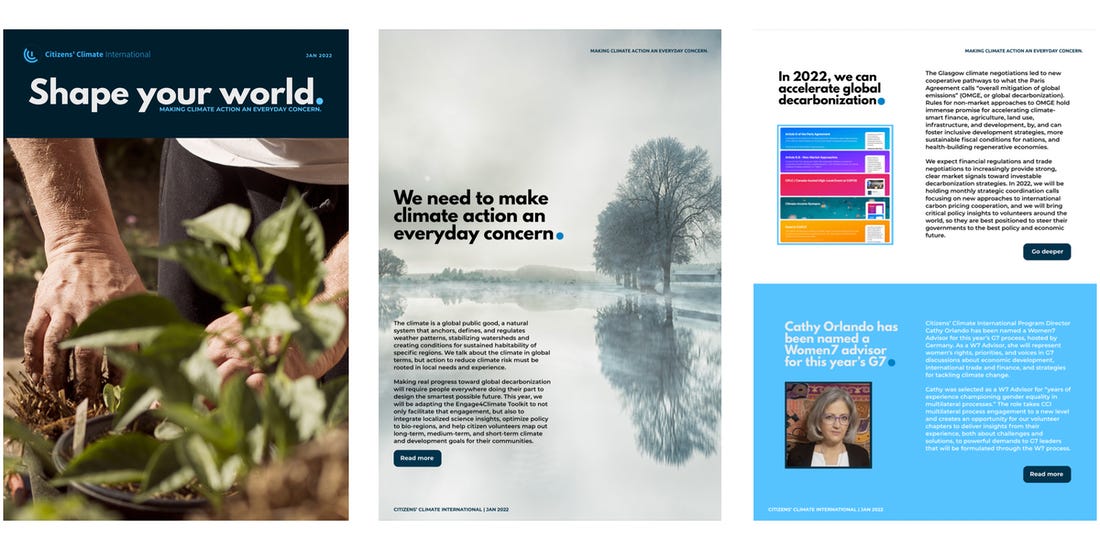CCI’s 1st year sets stage for progress in civics, diplomacy, pricing & resilience
Citizens’ Climate International came into existence 1 year ago today. It was a moment of tension, hope, and possibility. The Citizens’ Climate mission began in the United States in 2007, and is rooted in a commitment to the humanizing qualities of participatory democracy. One year ago, the US was just getting a new start toward healthy and inclusive civics, and CCI was starting up to focus attention on the work of building a healthy civic space for climate advocacy around the world.

The climate system connects us geophysically, ethically, and practically. Climate emergency is connected to all areas of basic human rights, including all 17 Sustainable Development Goals and the question of whether governments are transparent and responsive to the needs and interests of their people. Acting on climate gets easier when people are able to bring insights from their experience into the policy process.
We set ourselves some goals for 2021:
To expand our training of citizen volunteers around the world;
To highlight and advance climate civics as critical for global climate action;
To outline connections between green, inclusive recovery from COVID and raising ambition at COP26;
To spread awareness of and interest in climate income as a climate-smart COVID recovery strategy;
To establish CCI as a mission-oriented global team supporting the human right to a livable climate future.
We made significant progress in each of these areas:
We now have 146 local chapters in 76 countries.
We hosted the first annual Earth Day Citizens’ Forum, supported the Power Climate Action Initiative, and hosted the People’s Pavilion at COP26.
We published the 2021 Status Report on the Principles for Reinventing Prosperity, and an update on inclusive finance as key for Glasgow success.
We brought climate income to high-level meetings on carbon pricing, and helped citizen volunteers educate lawmakers about the policy.
We took a stand on the right to organize and advocate, and on the need to center human rights in global climate action efforts.
We also asked our volunteers to join us in examining how the activation of science insights can be a focus for informed climate civics.
Science has shown that global heating above 1.5°C will impose catastrophic costs on societies in all regions, threatening the viability of watersheds and ecosystems without which civilization is not viable.
The IPCC report that made this clear was called for by the COP21, in Paris in 2015. The reason was to determine whether the appropriate global target for preventing danger, in line with the mandate of the Convention, was “well below 2ºC” or 1.5ºC.
We are already experiencing catastrophic and accelerating costs from worsening climate emergency. Consequently, 1.5°C is the legally and scientifically defined danger threshold all UNFCCC nations must avoid.
If we are to achieve true net zero greenhouse gas emissions, in line with the 1.5ºC upper limit for global heating, we will need to rapidly decarbonize, accelerate natural carbon drawdown, and reach net zero well before 2050.
In 2022, we will enhance our training and education of citizen volunteer policy advocates with Science Activation training, aimed at helping to localize science insights. This is a way to empower citizen volunteers to support better decision-making at the local and national levels. The high tech, urban, and rural economies, need to connect more intelligently and collaboratively, so we do good for people while doing good for the planet.

We need to see a steady raising of ambition throughout 2022, in all contexts. We can talk about ambition in terms of both aims and outcomes. Including stakeholders in the design and implementation of climate policy can raise ambition in both ways.
Not accessing the local, rooted, and practical experience of stakeholders makes higher level decisions less well attuned to human conditions and capabilities, and less likely to succeed.
In other words, why should national governments guess what will work locally when they can access real-world experience of what works?
We want to see climate policies get specific, put down roots, and leverage the human capital of communities of all kinds, to ensure we move quickly toward a sustainable climate future.
We will support stakeholder-driven climate action in 2022, through these programs:
Volunteer Policy Advocates — Volunteer education, empowerment, and coordination.
Civic Diplomacy Program — Engaging the UNFCCC process and other UN bodies, the G7 and G20, World Bank and IMF, and promoting skill-building for complex, multidisciplinary climate policy work.
Carbon Pricing Program — International carbon pricing cooperation, the CPLC, climate income policies, and Article 6.8 innovations.
Resilience Intelligence Program — Resilience intelligence, climate-smart finance and the Principles for Reinventing Prosperity.
Year 1 for CCI has been a year of moving fast and slow at the same time, adapting to evolving COVID pandemic circumstances, and finding new ways to support our growing network of citizen volunteers around the world. In Year 2 we will focus on the areas of work laid out above, to provide our volunteers with more far-reaching opportunities for making climate solutions a reality.
We need to support each other if we are to make climate progress rapidly, everywhere, for the benefit of everyone. Please join us.
Read our January Newsletter…





